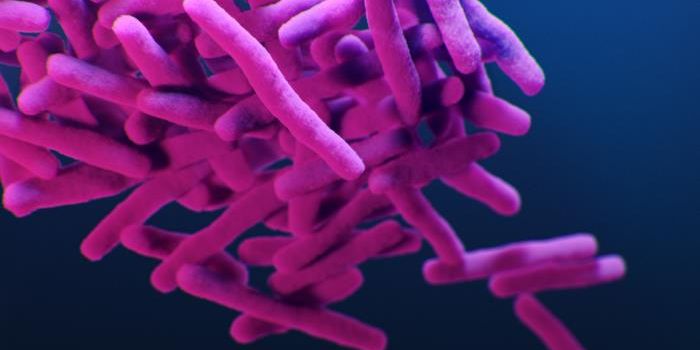The Unusual Microbiome of Bats
Most mammals, including humans, host a huge community of microbes in their gastrointestinal tract, and that gut microbiome has a significant impact on the health of the host. As research on the gut microbiome has intensified, scientists have found that it has likely evolved alongside its host, and related species often have similar microbiomes. New work reported in mSystems has shown that bats are different, however. Even closely related bats may not have similar gut microbes, and these unusual mammals may not have the same relationship with their microbiome as other animals.
"It shifts the paradigm we've been operating under, that animals require microbes for digestion and nutrient acquisition. That's true for us, but it may not be true for all species," noted the lead study author Holly Lutz, a research associate at Chicago's Field Museum and post-doctoral researcher at the University of California, San Diego. "The trends we're seeing suggest that bats may not depend on bacteria the same way many other mammals do and that they can survive just fine without a strict suite of bacteria in their guts to help them digest their food."
In this work, the researchers gathered microbial samples from the tongues, guts, and skin of 31 species of bats, surveying 497 bats in all from Kenya and Uganda. The team assessed the genomes of the microbes they collected and found that bats have more bacterial species in their mouths and skin than they do in their guts. There was also no obvious evolutionary pattern in the bat guts; they varied from species to species.
"There's essentially no relationship between the bat microbiome and bat evolutionary history. You'd expect to see similar microbiomes in closely-related bat species if these animals depended strongly on their bacteria for survival," explained Lutz. "This is largely what we've seen in other mammals that have been studied, but it's just not there in bats."
The species of bat is still a factor in the microbiome it hosts, but the composition of the microbiome may have more to do with their diet and environment and less to do with species. "The same species of bat in five locations might host five very different microbial communities," said Lutz. This may indicate that bats don't need a special microbiome to aid their biology the way other mammals do. Lutz suggested that this unique relationship may be due to the fact that bats fly.
"Bats have extremely shortened guts," she explained. It only takes fifteen to thirty minutes for food to move through the digestive system of a bat, which is only a third of the time that it takes rodents of similar sizes. "For bats, you can't be carrying around non-essentials. You need to reduce weight for flying--you don't want a heavy gut." The short digestive tract may have given bats their unusual microbiome.
This may also leave bats more vulnerable to changes in the world they inhabit. "Bats may be very susceptible to environmental change; if they have a transient microbiome, they might not have the most stable defense mechanisms," said Lutz. "Human-caused disturbances to the environment are a very important issue. Bats may be extra-fragile and more at risk."
Sources: AAAS/Eurekalert! via Field Museum, mSystems









